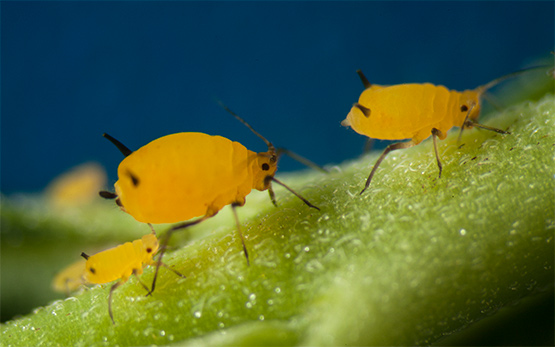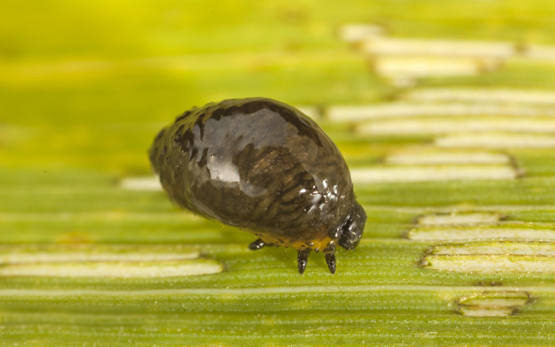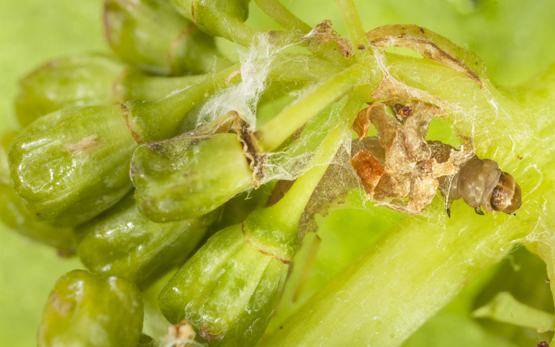Pest population dynamics, risk prediction and decision-support tools
In this project, we are studying population dynamics, geographic spread and phenology of various pest insects in arable crops and in vine (European corn borer, aphids, grapevine moth, carrot psyllid, etc.). The collected data will be used to develop forecasting models for the phenology of important pest insects, which will ultimately contribute to further reduce environmental risks associated with pesticide use. Currently modelling efforts focus on the European corn borer (Ostrinia nubilalis), American grapevine leafhopper (Scaphoïdeus titanus; vector of the grapevine disease flavescence dorée) and on two vine moths (Lobesia botrana, Eupoecilia ambiguella). Model outputs will be published on the internet platform www.agrometeo.ch together with guidelines and information on optimal pest control.
Economic injury levels
Pest insects will only lead to economic loss if they reach high density in crops. Therefore, pesticide applications will only be economically justifiable if pests density surpasses a certain threshold level. Economic injury levels are an important tool in integrated pest management (IPM) as they help to reduce unnecessary pesticide applications. In field trials, we are studying the damage potential of several crop pests including Phylloxera, crucifer flea beetle (Psylliodes chrysocephala), pollen beetle (Meligethes aeneus and M. viridescens), Colorado potato beetle (Leptinotarsa decemlineata), and cereal leaf beetle (Oulema melanopus).
Pest management and insecticide resistance monitoring
Integrated pest management (IPM) aims to reduce risks associated with large-scale use of pesticides in agriculture. This can only be achieved by the integration of multiple measures such as the use of biocontrol, protection of insect parasitoids and predators, choice of resistant crop cultivars, optimal timing of sowing, crop rotation, etc. Our research aims to further optimize IPM in vine, field and greenhouse crops. We are studying the efficiency of pest control measures and monitor the emergence of problems linked to pesticide resistance.
Emergent crop pests and disease vectors
The aim of our studies is to gain knowledge on how to rapidly respond to newly emerging pests in Swiss agriculture. We collect information and propose innovative solutions to pest management. An important element in this context is the monitoring of geographic spread and population build-up of emerging crop pests as well as disease vectors. Current work focuses on Drosophila suzuki, Halyomorpha halys, Scaphoïdeus titanus among others.
Diagnostic and advisory services
Correct identification of a pest and knowledge about its biology is an important prerequisite for pest management. We offer advice to the Federal Office of Agriculture, the cantonal phytosanitary services and farmers as well as the wider public and provide scientific expertise in case of pest problems in arable crops, vine and vegetable crops.








